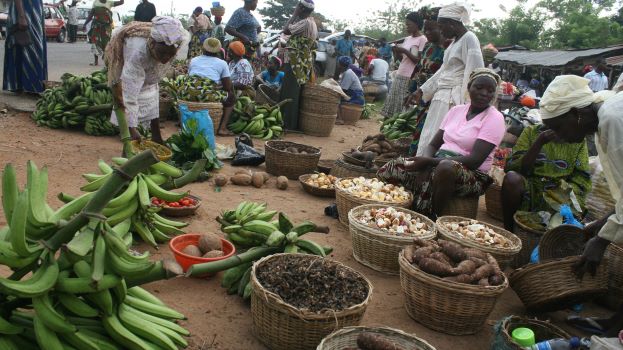Dr Chijioke Osuji, an agro – industry and value chain expert on Thursday says Nigeria cannot attain food sufficiency by still engaging in roadside drying of agricultural produce such as grains.
Osuji spoke with the News Agency of Nigeria (NAN) in Calabar.
The expert said that such practice could expose the crops to rainfall which could be hardly predicted due to climate change.
Osuji added that drying food by the roadside also predisposed it to rodents which caused lassa fever and other diseases.
He said the practice could lead to the contamination of food with sand, dust, vehicle’s exhaust fume and could not enhance commercial agriculture.
According to Osuji, some of the agricultural equipment such as dehydrators are produced locally but are not used because they are not even known.
“If you go to the National Centre for Agricultural Mechanisation, Ilorin, they have all kinds of designs not to talk of the Agricultural Engineering departments in our tertiary institutions.
“Dehydrators are not an issue in Nigeria in terms of technology but the difficulty is financing and awareness.
“I know the farmers in the rural areas may not want to take the risk of going for dehydrators to mechanise their food production due to ignorance but when we go with prototypes and demonstrate in localities, we can change them.
“Also, we can get some youths employed by giving them dehydrators and what it takes to support that value chain and they will dry food in days and hours what our farmers have been doing in weeks with very poor results.
“There is nothing wrong with helping those who fabricate commercial agriculture dehydrators and other agricultural equipment locally and farmers with credit facilities as that will boost food production,” he said.
Osuji said that the price of maize that was produced in large quantities in Nigeria could be tripled after drying instead of just roasting it by the roadside and making little profit.
Ghana parliament begins public hearings on anti-LGBT+ law
Ghana’s parliament on Thursday hold the first public hearing on a new law that would make it illegal to be gay or to advocate for gay rights, its press office said.
The so-called family values bill is currently before the Committee on Constitutional, Legal and Parliamentary Affairs, which said it had received more than 150 memoranda from individuals, groups and faith-based organisations on the bill.
The committee is expected to hear 10 petitions each week in a series of public sessions before the bill is put to a vote, deputy majority leader, Alexander Afenyo-Markin, said.
Gay sex is already punishable by prison time in Ghana, but no one has been prosecuted in years.
The new bill would go much further, criminalising the promotion and funding of LGBT+ activities as well as public displays of affection, cross-dressing and more.
Ghana’s speaker of parliament, Alban Bagbin, pledged in his opening address last month that parliament would pass the bill into law “at the earliest possible time’’.
U.N. human rights experts have urged lawmakers to reject it, saying it would establish a system of state-sponsored discrimination and violence against sexual minorities.
The bill has been promoted by conservative Christian groups in Ghana, which has become a hot spot for the debate on LGBT+ rights in Africa.
The United States-based World Congress of Families (WCF), a group that works to advance anti-gay laws and policies around the world, held a major regional conference in Ghana’s capital Accra in 2019.








